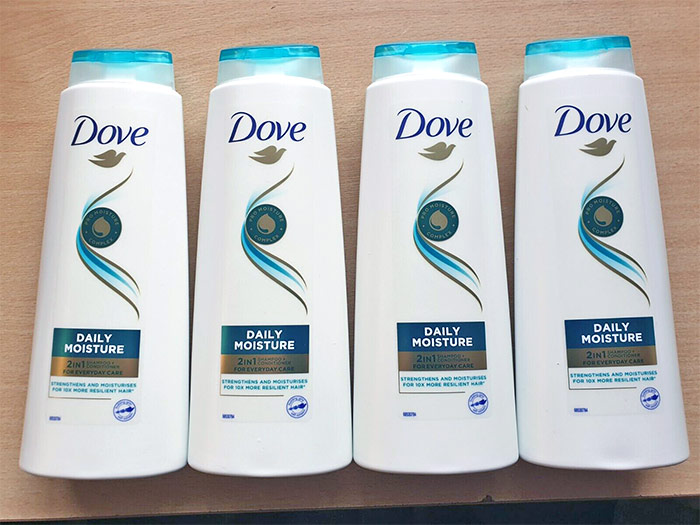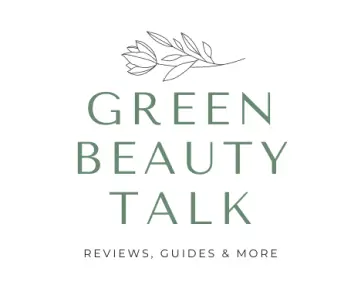Ever wondered what’s really in Dove shampoo? It’s a go-to for many, but is it actually good for your hair, or could it be causing issues like hair loss? In this guide, we’ll look at the ingredients, discuss any potential concerns, and find out if Dove shampoo is helping or harming your hair.
Quick Answer: Is Dove Shampoo Good for Your Hair?
Dove shampoos are generally safe for most people. They are formulated to be gentle and effective for various hair types. However, some ingredients may cause hair and scalp issues. Silicones might lead to buildup over time, resulting in dull and dry hair. Preservatives can cause irritation, and fragrances can trigger allergies for some individuals.
Overall, while Dove shampoos can be a good option for many, it’s important to consider your hair type and any specific sensitivities you might have.

What’s Inside Dove Shampoo?
Let’s take a closer look at some of the main ingredients found in Dove shampoos and what they do:
- Surfactants (e.g., TEA-Sulfate, Sodium Laureth Sulfate and Cocamidopropyl Betaine): These are the cleansing agents that help to remove dirt and oil from your hair.
- Silicon Polymers (e.g., Dimethicone, Dimethiconol): These make your hair feel smooth and look shiny.
- Preservatives (e.g., Sodium Benzoate, Phenoxyethanol): They keep the shampoo fresh and free from bacteria.
- Natural & Synthetic Fragrance: Dove shampoos are known for their lovely scents created by using a blend of natural fragrances like Limonene, Citronellol, Linalool, and synthetic fragrances like Hexyl Cinnamal.
- Colorants: Micas or synthetic dyes add color to the shampoo.
- Natural Additives: Some formulas include:
- Plant Extracts: Aloe vera, caffeine, menthol, vitamins, and minerals to strengthen hair.
- Plant Oils and Butters: Shea butter, coconut oil, and sunflower oil to moisturize and nourish hair.
- Amino Acids: Arginine and lysine help hair retain moisture by preventing the cuticles from drying out.
- Keratin (natural protein found in hair): Revives and nourishes dry and damaged hair, giving it a glossy and shiny look.
- Humectants (e.g., Glycerin): Draw moisture into the hair.
- Thickeners (e.g., Carbomer, Sodium Chloride): Enhance the texture and viscosity of the shampoo
- Conditioning Agents (e.g., Guar Hydroxypropyltrimonium Chloride): Improve hair manageability and feel.
- Chelating Agents (e.g., Sodium Gluconate): Bind and remove metal ions to improve product stability.
Some Dove shampoos also contain specific ingredients like hydrolyzed soy protein for strengthening hair, and PEG-45M for better texture and feel.
Potentially Concerning Ingredients
While Dove shampoos contain many beneficial ingredients, there are a few that could be concerning for some users:
- Dimethiconol: A silicone that adds a lightweight shine without weighing hair down. Although it’s more lightweight than dimethicone (other commonly used silicone), it can still build up on hair over time, potentially causing dullness, dryness and making hair feel greasy. Using a clarifying shampoo occasionally can help manage this buildup.
- Phenoxyethanol: A preservative that can cause irritation and redness in sensitive individuals.
- Fragrance: Can lead to irritation and allergic reactions for some people. If you have a sensitive or eczema-prone scalp it’s best to go for fragrance-free formulas.
- Sodium Chloride (Salt): May cause a dry, itchy scalp and potentially contribute to hair loss in combination with other ingredients.
Sulfates in Dove Shampoos
Dove shampoos use milder sulfates like Sodium Laureth Sulfate (SLES, made from plant sources such as palm oil and coconut oil), which is gentler and less irritating than Sodium Lauryl Sulfate (SLS).
They also use other gentle sulfates like TEA-Sulfate, which are non-drying in small concentrations. If you’re worried about sulfates drying your hair, Dove shampoos avoid the harshest ones and can be suitable for dry hair.
FAQs
Do Dove Shampoos Contain DMDM Hydantoin?
DMDM Hydantoin is a preservative that releases small amounts of formaldehyde to prevent bacteria growth. This ingredient has been controversial due to its links to cancer, hair loss, and scalp irritation. While some Dove shampoos previously contained DMDM Hydantoin, this ingredient is no longer used in their newer formulas. However, it may still be found in older batches, so it’s important to check the ingredient list if you want to avoid it.
Are Dove Shampoos Paraben-Free?
Yes, Dove shampoos are paraben-free. Parabens have been controversial in the beauty industry due to concerns about their potential link to cancer, although scientific evidence has not confirmed this. Despite being free from parabens, Dove shampoos use other preservatives that may still cause irritation for some individuals.
Can Dove Shampoos Cause Hair Loss?
There is no concrete scientific evidence that Dove shampoos cause hair loss. However, in the past, many users reported undesirable hair shedding when using certain Dove shampoos. This was linked to ingredients like Sodium Lauryl Sulfate and DMDM Hydantoin, which were investigated in a lawsuit.
These ingredients are no longer found in most current Dove shampoo formulas, and the updated formulations are much safer.
While some users experienced hair loss and scalp irritation with older formulas, the new formulas should not have the same concerns. However, some ingredients may still cause irritation in sensitive individuals.
Can Dove Shampoo Cause an Itchy Scalp?
Dove shampoo can cause an itchy scalp in some individuals, especially those with sensitive skin. This reaction is typically due to certain ingredients like fragrance, preservatives (e.g., Phenoxyethanol), and Sodium Chloride, which can irritate the scalp.
While Dove shampoos are formulated to be gentle, it’s important to choose a product that matches your scalp’s sensitivity and to monitor how your skin responds. If you experience persistent itching, it may be beneficial to switch to a milder, fragrance-free shampoo.
Final Thoughts
Dove shampoos have improved over the years, becoming gentler and less irritating. They now use fewer harsh chemicals and more mild ingredients, but still include mainly synthetic components. This means that while many people can use Dove shampoos without issues, those with sensitive skin might still experience irritation from preservatives and fragrances.
Silicones in the formulas can also cause buildup, so using a clarifying shampoo occasionally is a good idea. Overall, Dove shampoos are a decent option (although not that natural), but they might not work for everyone. Choose the one that best matches your hair and scalp needs.

Petra Nakashian (previously Kravos) is a dedicated natural health and beauty blogger, driven by the loss of her parents to cancer, which led her to meticulously research beauty product ingredients. With over 10 years of experience, her in-depth knowledge has made her a trusted expert in the field. Founder of Be Healthy Now and Green Beauty Talk, Petra recently expanded her expertise with Beauty Insights Hub, exploring a wider range of beauty treatments. Committed to transparency and honesty, her work is a vital resource for navigating the complex world of beauty.

